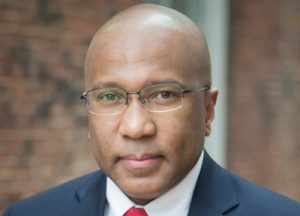by Dr. Harry L. Williams
There is little question that higher education in general, and our historically Black colleges and universities (HBCUs) in particular, have been greatly impacted by COVID-19, the likes of which we have not seen in our lifetime.
Colleges and universities across the nation have had to scramble quickly to adapt to the unexpected, including a pivot to online learning.
In the wake of this growing pandemic, media reports have highlighted the unique set of challenges that confront HBCUs. The economic burdens, for example, are daunting for the nearly 72% of HBCU students who are Pell Grant eligible, meaning their family income is less than $20,000 per year.
Additionally, 43% of HBCU students rely on jobs to cover their basic living expenses while many others lack the technology to successfully complete their online education, including access to mobile phones, internet access, laptops and e-textbooks. One of our Thurgood Marshall College Fund (TMCF) member-schools recently reported that 15% of its student body does not have access to the internet at home. Stress, coupled with a lack of financial resources and/or homelessness caused by college dorm closures, has prompted renewed conversations about the need for mental health support to help our students navigate these turbulent times.

Dr. Harry L. Williams
Our brick-and-mortar campuses are struggling too. Many of our institutions are highly dependent on tuition-based revenue and are concerned about enrollment and retention efforts. Put simply, the challenges facing the HBCU community are enormous and great. And while it’s too early to calculate the devastating toll from this catastrophe, the outpouring of support and solidarity in recent weeks by political and civic leaders; the business community, and everyday Americans, should leave us all hopeful and encouraged.
I was delighted to see leaders from both political parties put partisanship aside to rally on behalf of our storied HBCUs. Just a few weeks ago, Senator Tim Scott (R-SC), and Congresswoman Alma Adams (D-NC)—the Founder and Co-Chair of the Bi-Partisan HBCU Caucus—joined forces with other legislators to champion the passage of The Coronavirus Aid, Relief, and Economic Security (CARES) Act. This historic piece of legislation provides the necessary $1.05 billion in much needed relief to HBCUs, Predominantly Black Institutions (PBIs) and other Minority Serving Institutions (MSIs) who have experienced considerable financial hardship as a direct result of the Coronavirus outbreak and its aftermath.
Without the advocacy of the entire HBCU and MSI community, it is possible that the CARES Act would not have included the necessary funding for our most vulnerable students. Our unified effort and advocacy regarding the challenges our schools have encountered in responding to the Coronavirus ultimately made the difference in getting this critically-needed financial relief to our member-schools.
While The CARES Act should not be viewed as a panacea, it is nonetheless, an important and welcomed first step. At the end of the day, it will take federal, state and local intervention working in concert with the private sector, to help our schools and students not only survive, but rebuild and prosper long after this pandemic is over.
The Thurgood Marshall College Fund has sprung into action to do what we have always done: provide assistance to our students and schools. Thanks to the generous support of JP Morgan Chase, TMCF has provided emergency scholarships to students from across the nation. These emergency scholarships will help reduce food insecurity and help cover other unanticipated costs resulting from COVID-19. Additionally, Ally Financial and Wells Fargo are just a few of the many corporate partners who are stepping up to provide financial assistance. Their generosity has allowed us to establish the TMCF COVID-19 Emergency Fund so that we can continue to assist students in need. But there is more to be done and you can help. Since the onset of this pandemic, we have received emergency fund requests from more than 3,000 students with a demonstrable need totaling about $1.24 million.
Helping students attend and graduate from college has been the hallmark of TMCF’s mission since our founding in 1987. That work continues even as we weather these unpredictable times. We know that the resilience of our member-schools and the students who attend them, will ultimately enable us to emerge from this storm more stronger and more determined than ever before.
Dr. Harry L. Williams is the President and CEO of the Thurgood Marshall College Fund. You can follow him on Twitter @DrHLWilliams

